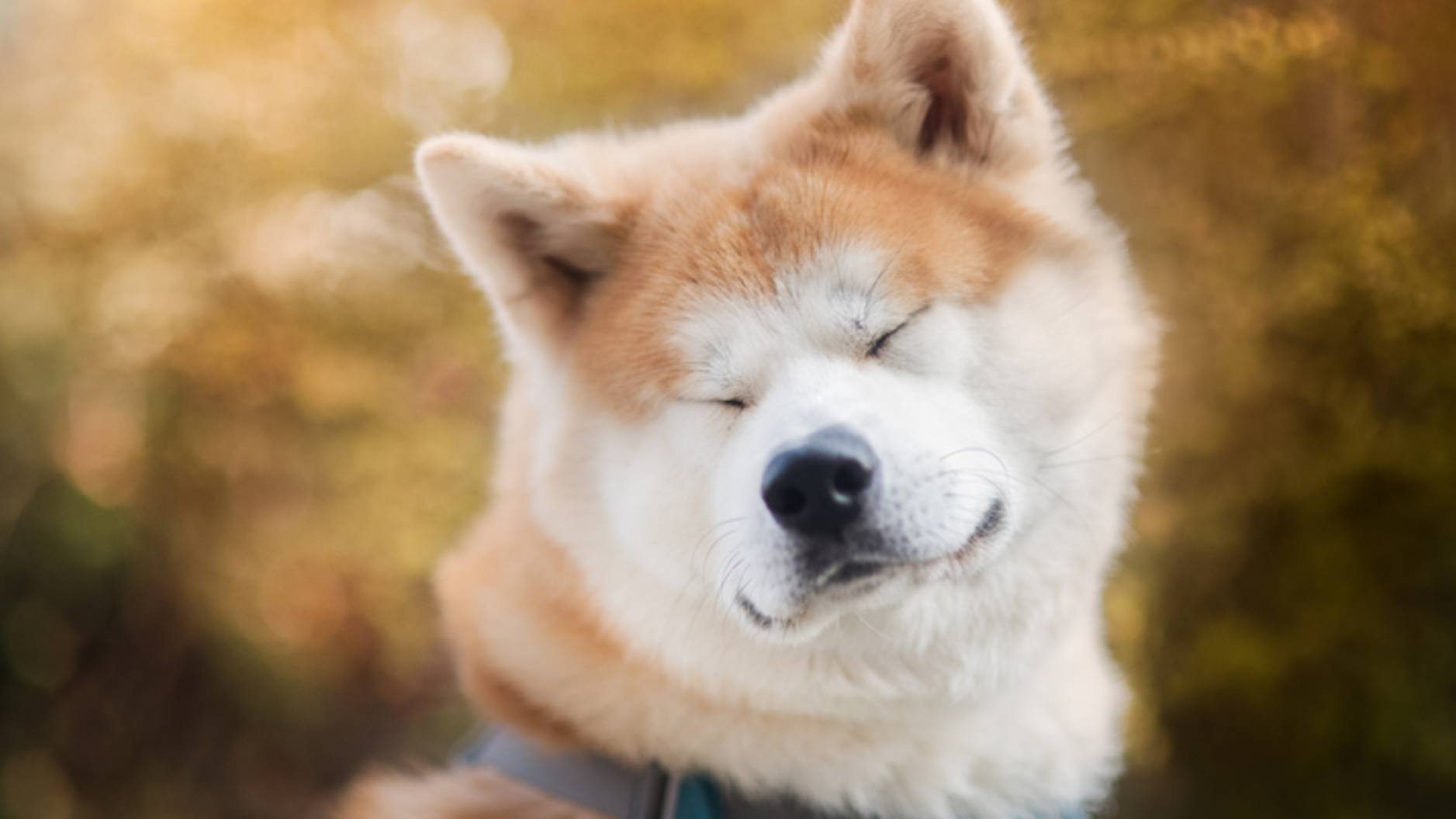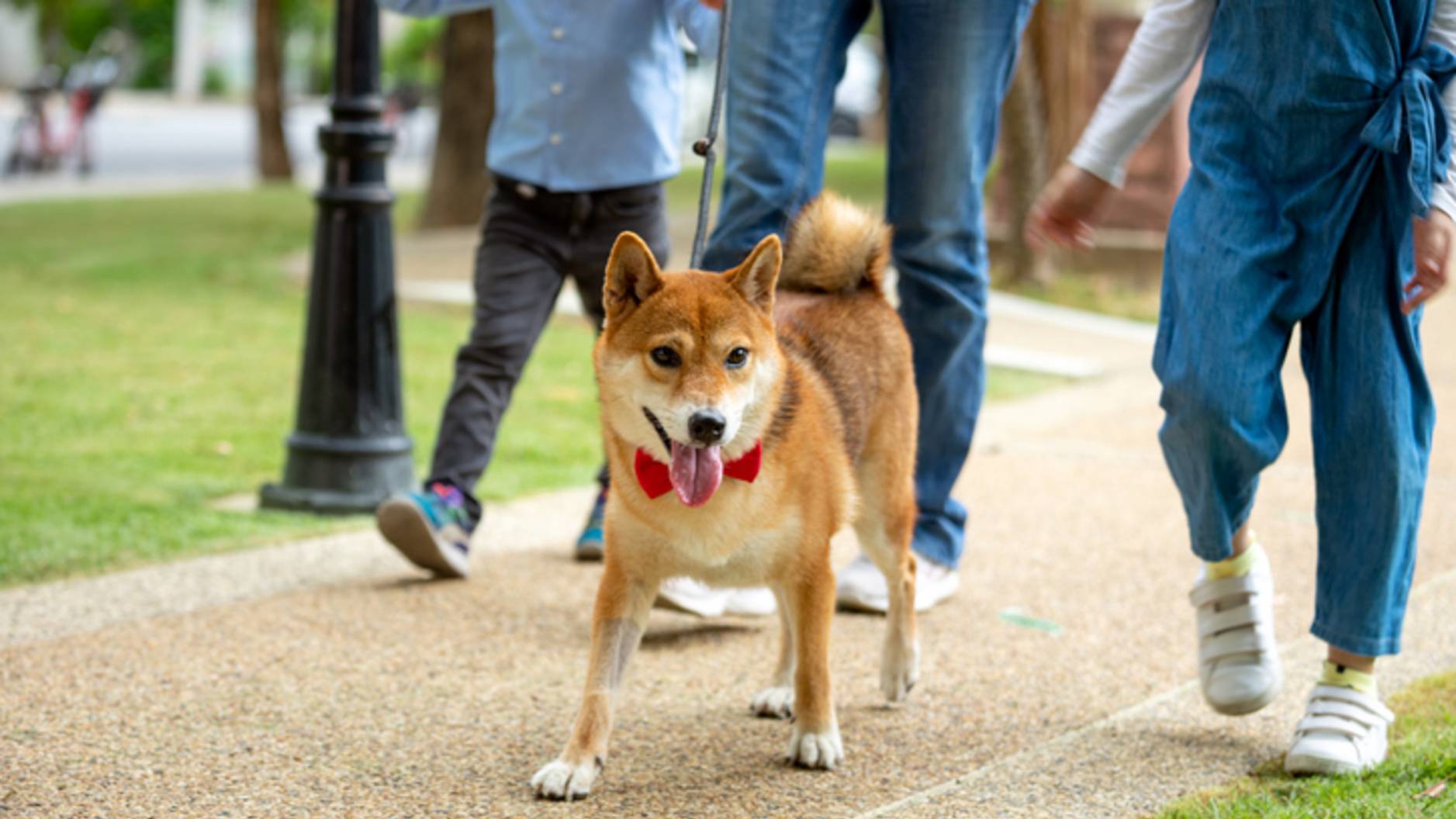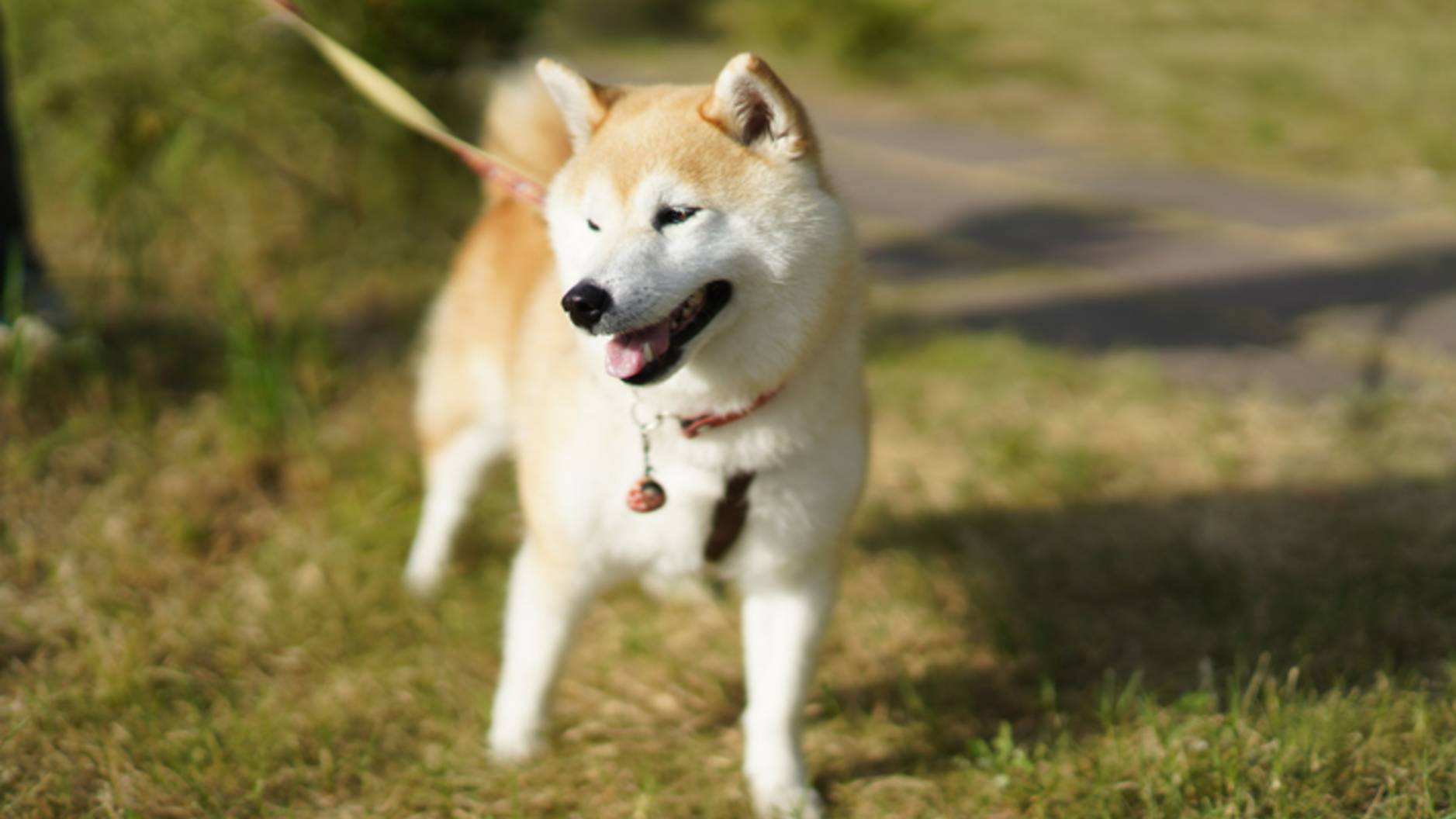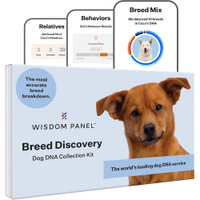Akita: Breed profile
The Akita is an intelligent and loyal breed, but they can be strong-willed and highly active, so they're best suited to experienced owners who love the outdoors

The exact origin of Akitas is not entirely known. We are aware, however, that they originated in Japan and were once restricted to being owned by samurai who used them to hunt wild boar, bears and deer. Japanese people certainly revere them; they’re one of the most popular Japanese dog breeds. Akitas are said to symbolize happiness, good health and longevity and they are also known to be fearlessly protective of their family.
Yet mention an Akita to a dog lover and they may tell you that they're aggressive. In truth, they can be as we'll see. But if you can handle their strong-will and become their natural leader through great training and socialization, then they'll become respectful of your family, show affection and become a fun little pal to have around too.
One thing's for sure, Akita's are people dogs, albeit primarily with their owner and family. They also seem to have their own vocabulary so half of the fun is working out what they're saying and whether they are casting judgement on what you're doing in your daily lives. To that end, they're hugely endearing and they also look really cute. Part of the spitz family, they resemble a fox but their muscular builds, energy level and need for exercise means they're not for everyone. Let's take a look!
How much exercise does an Akita need?
Life expectancy: 10-12 years
Average weight: Male: 85lbs/39kg Female: 64lbs/29kg
About the same as: A single bed
Exercise level: High
Akitas need plenty of exercise, more than many other breeds so be prepared to take them for walks – and preferably some runs – for at least a couple of hours every day and, if there is some safe water around, let them go for a swim. If you don't burn off their excess energy, they can become bored and destructive. A lack of exercise can also lead to greater aggression but do be more careful in the summer when Akita's can become overheated rather quickly.
If you have a secure, fenced yard, then let them loose – but don't unleash them in the park if other animals are around because they may decide to give chase. Allow them to run, play with the best dog toys and engage with you in games such as fetch or hide-and-seek. You'll be looking to exercise their mind as well as their body, with Akita's very receptive to their owner's attention. These are not dogs that like to be left alone for long periods, so exercise that involves you will work particularly well.
Are Akitas easy to train?
Suitable for: Experienced, active dog owners who want a close loyal companion
Not suitable for: Families with young children and other pets
Temperament: Intelligent, composed, faithful
Shedding: High
Training Akitas requires a lot of patience, primarily because they are an intelligent, independent breed that become easily bored and they like to do things their own way. Some would go as far as saying Akitas are stubborn but, in general, if you take the right approach (positive reinforcement works wonders!) and remain consistently firm but fair, then they will quickly pick up on what you're asking of them.
An important part of training will be socialization and this must start early. Since Akitas are wary of strangers, as well as other animals and new situations, it's a good idea to introduce them to as many people, pets and places as you can. Encourage friends to visit and display affection and hope an Akita will soften their stance to some degree. Don't expect this breed to suddenly leap around in the presence of others though, or to rub along nicely with other animals, especially same-sex dogs. If anything, pets and wildlife are seen as rivals!
Are Akitas good with kids?

Akitas make for great family pets but you should be wary about adopting this breed if you have young children. Even if you've socialized an Akita well and done so early (and even if you're taught children to be respectful), you'll still need to keep a watchful eye whenever kids are interacting with the breed, not least because these dogs are powerful and muscular and can easily knock over and injure a child. At worst, Akitas can become aggressive, particularly if they're mistreated. They certainly won't appreciate over-enquiring fingers and eager grabs of their tails and they're not really dogs to be roughly played with.
What do Akitas eat?
Akitas are prone to packing on the pounds and you'll need to keep them in shape to maintain their health. One way is to feed them a balanced diet and to only give them treats on occasion or during training.
Aim for between three and five cups of the best dry dog food each day and look for kibble that contains at least 22 percent protein, especially when they are puppies and are using up lots of energy. Akita's need food filled with vitamins, minerals, omega fatty acids, carbohydrates and fibre but it's fine to opt for lower calorie kibble if you feel this breed need to cut their weight.
One thing to consider is how you feed an Akita. They are food aggressive especially if they are around other animals and they will become very protective of their bowl. Separating bowls from others will help.
Do Akitas bark a lot?
Akitas don't tend to bark unless they spot an intruder or feel threatened but that's not to say they are mute the rest of the time. Far from it. They will growl if they feel you have done something which upsets them, such as taking away a toy or if they become scared. They also mumble and grunt as if they are talking but this is nothing to worry about – if anything, it's endearing and it seems they're only keeping themselves amused!
Are Akitas aggressive?

They can be, but they're not prowling homes in a huff waiting to display any anger. For the most part, they're lovely, loyal dogs who will follow you around, seek to protect you and be more than willing to carry out all manner of helpful tasks such as fetching your shoes or some other object you've left lying the house. They'll also let you know if they want something, build up a rapport and become affectionate if they're well-trained. But that's the important thing: training is crucial both for the dog and yourself. Understanding the boundaries and not overstepping them works wonders if you want to rub along nicely with an Akita (refrain from staring them in eyes). Don't think you can totally train aggression out of the breed, though. According to Dan Rice, author of Akitas, aggression is genetic.
Do Akitas shed a lot?
Amount of shedding: High
Easy to groom: Yes
General health: Good
Potential for weight gain: High
With their thick double coats keeping them warm in winter and cool in summer, you're going to find hair everywhere throughout the year – more so during the spring and fall. But it is manageable to some degree. As well as vacuuming, you can keep on top of fur spreading across your furnishings by running the best dog brushes over the coat once or twice a week and giving them a bath every few months. They're a bit like cats, though, and will take care of some of their own grooming. But if you keep on top of teeth brushing and trim their nails while checking for lumps and fleas (and wiping their mouths of drool!), you'll find they remain in tip-top shape.
Akita health problems
Akitas are generally healthy dogs but watch out for common ailments such as hypothyroidism, hip dysplasia, bloat and an uncommon but genetic condition called sebaceous adenitis. The latter causes the sebaceous glands to be destroyed eventually leading to alopecia but it is treatable. Cover yourself from any big bills by taking out the best pet insurance but be aware that some charge higher premiums for Akitas.
Should I get a Akita?
If you've never owned a dog before or if you have young children then steer clear. Akitas are not easy dogs to train and you're going to need to spend a lot of time socializing them properly, early and over the course of their lifetime. They're not great if you have other pets in the house because they can give chase and if you're houseproud, then you may find yourself on edge for much of the time. All of which sounds like they are a breed to avoid and yet they're not. For experienced dog owners with older families and sufficient patience, time and understanding, Akitas are amazing, loyal and loving dogs. Cute and clean, there's a clear reason they growing in popularity across the world!
Wisdom Panel Breed Discovery DNA Kit | Amazon
Not sure exactly what breed your dog is? This kit screens for 365+ breeds – because knowing every detail about your dog helps you understand how best to care for them.
Interested in learning even more about Akitas? Here are 10 Akita facts that may surprise you!
PetsRadar Newsletter
Get the best advice, tips and top tech for your beloved Pets

David Crookes has been a journalist for almost 30 years and he has written for a host of magazines, newspapers, websites and books including the World of Animals Annual, BBC Earth, Live Science, The Independent and Tom’s Guide.
Born in England, he lives with two cats but he’s also keenly interested in the differences between the huge number of dog breeds – in fact, you can read many of his breed guides that he’s written in collaboration with vets here on PetsRadar.
With a lifelong passion for technology, too, he’s always on the lookout for useful devices that will allow people to keep their pets happier and healthier, and provide them more time to spend together.
David has a degree from Durham University, as well as postgraduate diploma in journalism from the University of Central Lancashire.

